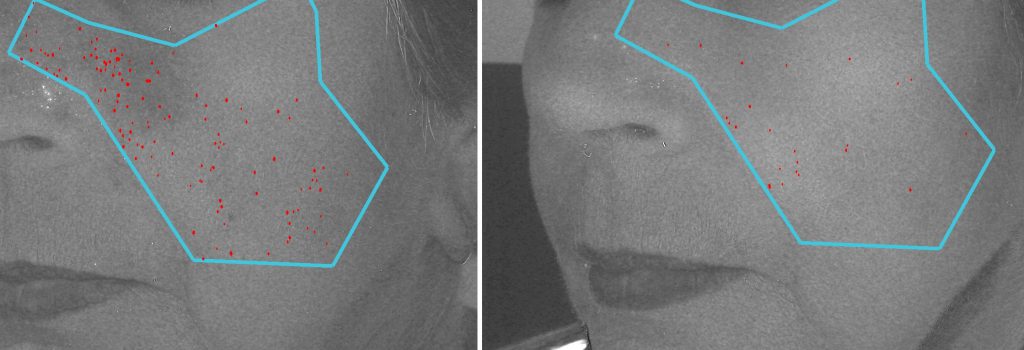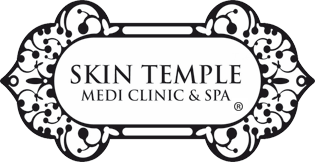What is Rosacea?
Rosacea is a very common chronic skin disease affecting the face, especially in people over the age of 30years, and causes redness from chronic inflammation in the skin, a burning sensation and frequent pustules typically around the cheek area. Eventually, capillaries become very distended and many people become distressed by the cosmetic consequences in addition to the disease itself. The rash is often worsened by certain trigger factors, such as spicy food, alcohol, heat or UV exposure. Often sufferers are wrongly accused by others of being alcoholic, because of the extent of their ruddy complexion. The underlying cause is not well understood, but appears to be related to an overgrowth of a certain type of bacteria and/or mites (demodex) living in the outer dead layer of skin. As we age, the skin turnover slows down, allowing this bacteria to build up to an unacceptable level.
How common is it?
Rosacea affects women more than men, and occurs in up to 10% of the fair skinned population. The peak incidence of Rosacea treatment is between 40 and 50years. It is much less common in very dark skintypes.
Why should I have it treated?
If left untreated, sufferers will incur years of increasing disfigurement, which initially may be fluctuating, but will eventually become chronic, debilitating and can also lead to gross distortion of the nose. The latter occurs more often in men.
What are the treatment options?
The rosacea treatment by the medical profession has traditionally rested on the prescription of long-term antibiotics, either in a topical or oral form.
Clearly, for many sufferers this is a suboptimal treatment response, encouraging antibiotic resistance, and not addressing the causative risk factors at all.
At Skin Temple, our medical treatment approach is based upon a thorough assessment of your skincare routine, response to various previous treatments and dietary triggers, and then the introduction of medicated products which, though active, are gentle enough to be tolerated by even the most sensitive of skintypes. Some of these products are over the counter (eg Avene hypoallergenic products containing retinaldehyde), others are prescription only, so a consultation with Dr Teska is essential. Baseline photos with our Visia system is also very useful for monitoring of progress, especially as it will document the amount of bacteria on the skin with each visit.
The example shown in the images here is of an actual Skin Temple client, who had already undertaken many months of treatment from her dermatologist and GP before presenting to our clinic. Whilst the antibiotic tablets had improved the severe pustules she had originally presented with, her skin remained extremely red and sensitive. The ‘after’ picture is of the same client after only one laser session. She was subsequently able to cease her oral antibiotics, and her Rosacea has remained well controlled with topical non-antibiotic preparations and only occasional oral antibiotics for the last 5years. She has not required any further laser treatment for 4years now.


Skin Temple can treat the dilated capillaries and background ruddiness and oedema so often seen with rosacea.
We have several lasers to treat the dilated capillaries and background ruddiness and oedema so often seen with rosacea. The most commonly used lasers for this problem are the Coolglide, Laser Genesis and IPL. For many clients, the improvement seen with their first laser treatment is quite dramatic, and the change this brings to the sufferers wellbeing is immense.
Complimenting our laser rejuvenation treatments (which incidentally are usually Medicare rebatable as they are done by Dr Teska personally), clients will have the option of calming skin further with the use of our marine based facial treatments from Phytomer. Marine algae based treatments have a very soothing effect on irritated skin, and can be used in between laser sessions to further calm severe cases of rosacea. For others, they are done as a special treat at the end of their laser sessions to celebrate the return to ‘normality’!
